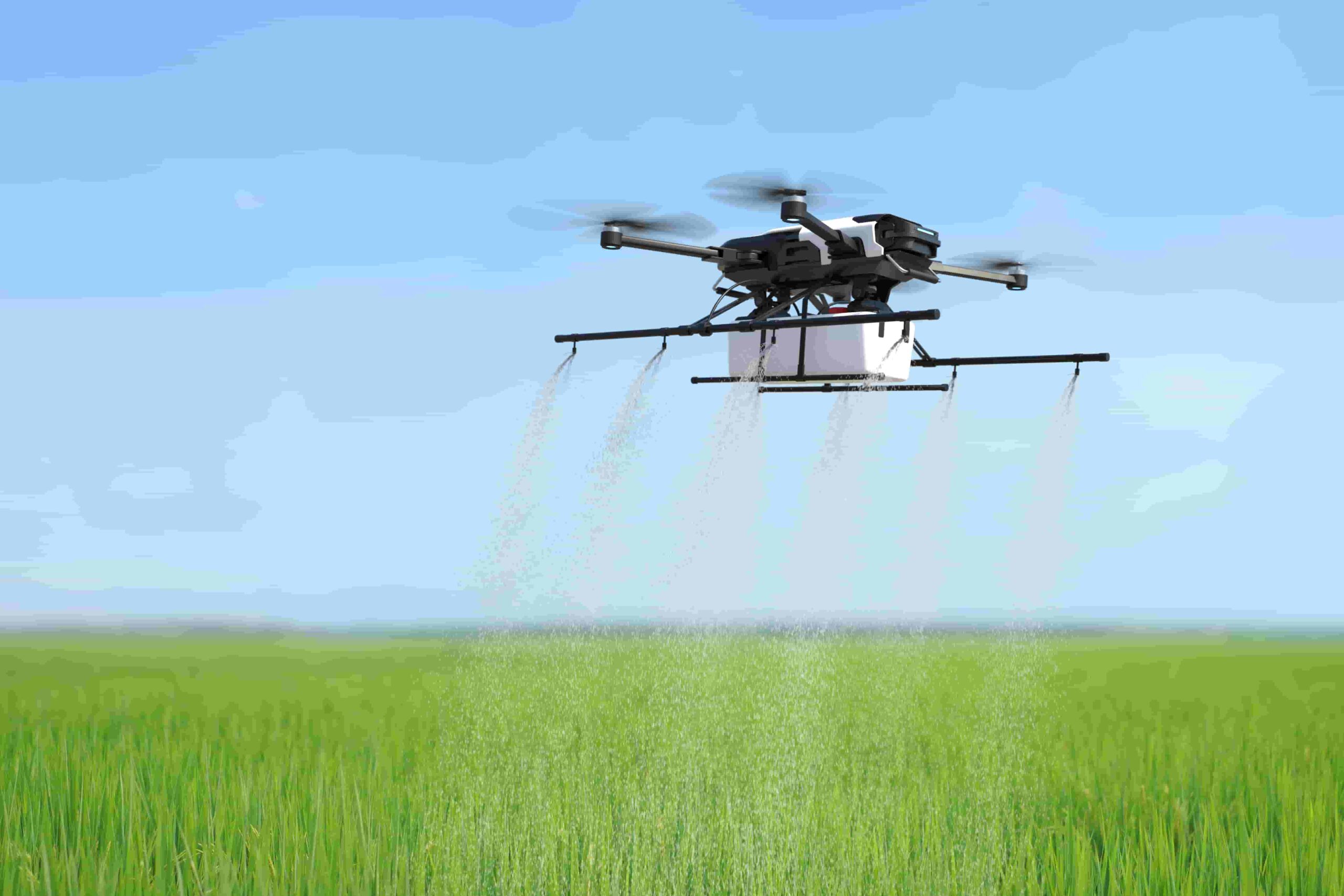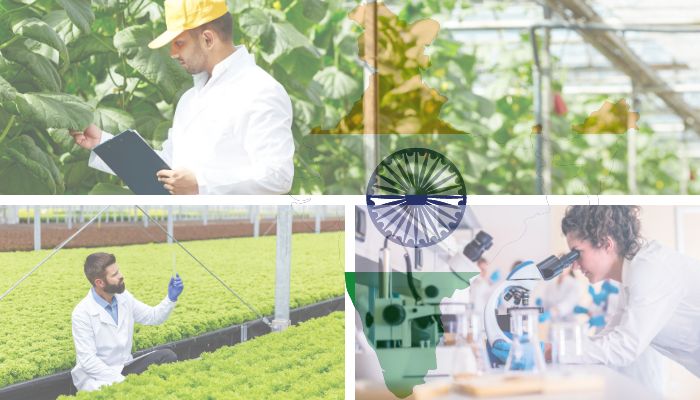Hello & Welcome, everyone! In this blog, we’re embarking on a journey to explore some interesting facts about Agriculture Studies in India. Get ready to uncover the hidden gems and interesting facts that intrigue this field.”
Agriculture studies in India go beyond the traditional image of farming. It’s a multidisciplinary domain that encompasses various fields like agronomy, horticulture, agricultural economics, and more.
In this blog, we embark on a journey to uncover the enigmatic and discover the fascinating tapestry of interesting facts about agriculture studies in India. reveals intriguing aspects. Pioneering the Green Revolution, Top Agriculture institutions like the G.B. Pant University of Agriculture and Technology have left a significant mark. Beyond traditional farming, undergraduate programs encompass diverse fields including agribusiness and rural development. The Central Institute for Women in Agriculture stands as a unique initiative, dedicated to empowering female farmers through specialized research. Notably, the Indian Agricultural Research Institute introduced the high-yielding wheat variety “Kalyan Sona.” Delving deeper, the National Academy of Agricultural Research Management focuses on policy and leadership facets, adding to India’s holistic approach to agricultural education. These interesting facts have a hidden opportunity in them.
Given below are 12 such interesting facts about Agriculture studies in India that can lead to extraordinary career opportunities for Agriculture students in India.
1. Interdisciplinary Nature
Agriculture studies in India are not limited to just farming techniques. The field encompasses various disciplines such as agronomy, horticulture, forestry, agricultural economics, animal husbandry, agricultural engineering, and more.
Agronomy
Agronomy studies bolster organic farming by guiding soil health management, crop selection, pest control, and nutrient cycling. This knowledge optimizes organic practices, enhancing yields, sustainability, and resilience while aligning with natural principles for productive and environmentally friendly agriculture.
Best colleges of Dehradun offering M.Sc. in Agronomy
Horticulture
Horticulture studies in India encompass the science and practice of cultivating fruits, vegetables, ornamental plants, and medicinal herbs. It involves various aspects like crop production, plant breeding, pest management, and post-harvest techniques. Students learn about soil management, irrigation, greenhouse cultivation, and landscaping. Graduates can pursue careers in farming, research, agribusiness, and environmental conservation, contributing to India’s agricultural growth and food security.
Agricultural economics
Agricultural economics examines the economic aspects of agricultural production, distribution, and consumption. It delves into factors affecting farming profitability, resource allocation, and market dynamics. This field analyses supply and demand trends, trade policies, and agribusiness operations to enhance efficiency and sustainability. It also addresses rural development, poverty alleviation, and food security issues. Through cost-benefit analyses and market modeling, agricultural economists provide insights into optimal resource utilization, risk management, and policy formulation. Their work influences agricultural practices, trade negotiations, and government policies, contributing to global food systems and the livelihoods of farming communities.
2. Innovation and Technology

Modern agriculture in India is increasingly adopting advanced technologies like precision farming, drones, Biotechnology, and data analytics to enhance productivity and sustainability. In recent years, Indian agriculture has witnessed a transformative shift towards technological integration. Precision farming employs data-driven approaches to optimize inputs like water, fertilizers, and pesticides, boosting efficiency. Drones provide real-time monitoring of crops, aiding in disease detection and yield estimation. Biotechnology plays a pivotal role in developing drought-resistant and high-yield crops through genetic modification. Data analytics processes vast agricultural data sets, enabling informed decision-making for farmers. These advancements enhance productivity, conserve resources, and bolster sustainability.
3. Research and Development

India has several renowned agricultural research institutes like the Indian Council of Agricultural Research (ICAR) and state agricultural universities that contribute to the development of improved crop varieties, pest management strategies, and sustainable practices.
Apply for Admission to B.Sc. Agriculture in Top Colleges of Agriculture in Dehradun.
4. Climate Adaptation
With climate change impacting agriculture, Indian agricultural studies are focusing on developing climate-resilient crops, water-efficient practices, and strategies to mitigate the effects of changing weather patterns. In the face of escalating climate change and its multifaceted impacts, the role of Bachelor of Science (BSC) in Forestry programs has become more critical than ever. These programs not only equip individuals with a comprehensive understanding of forest ecosystems but also empower them to contribute significantly to climate adaptation strategies.
Apply here in Best B.Sc. Forestry College in Dehradun for admission to B.Sc. in Forestry
5. Organic Farming
Organic farming is gaining popularity in India due to increasing consumer demand for chemical-free produce. Agricultural studies are exploring techniques for organic farming and certification processes. A career in organic farming in India unveils intriguing aspects. Traditional Indian farming practices often align with organic principles, reflecting a rich historical connection—government initiatives like Paramparagat Krishi Vikas Yojana support organic adoption. Certification hurdles, particularly for small-scale farmers, underscore the need for streamlined processes. Organic farming integrates agroecology, emphasizing biodiversity and soil health. The organic community fosters knowledge exchange through cooperatives and farmers’ markets, contributing to a holistic and sustainable career choice.
6. Agribusiness Management
Agricultural studies also encompass agribusiness management, which involves understanding marketing, supply chain management, and business strategies related to agricultural products. After pursuing agribusiness management in India, graduates can pursue careers as agricultural marketing managers, supply chain coordinators, rural development specialists, and agribusiness consultants. They play a vital role in modernizing the agricultural sector by integrating business strategies with farming practices. Graduates can contribute to food security, sustainable farming, and rural economic development. With India’s agrarian economy and the need for efficient resource management, agribusiness management professionals are in demand to create resilient and profitable agricultural ventures, fostering growth while addressing challenges related to market dynamics, technology adoption, and environmental sustainability.
Check Top Management Colleges in Dehradun
7. Government Initiatives
The Indian government has launched numerous initiatives to transform and uplift the agricultural sector. Programs like Pradhan Mantri Krishi Sinchayee Yojana focus on irrigation and water-use efficiency. Rashtriya Krishi Vikas Yojana supports agricultural development, while Paramparagat Krishi Vikas Yojana promotes organic farming. Additionally, e-NAM facilitates the online trading of agricultural produce. The Soil Health Card scheme aims to assess and enhance soil fertility. PM Kisan provides direct income support to farmers. These initiatives address challenges in irrigation, market access, and technology adoption, aiming to improve productivity, farmer livelihoods, and overall agricultural growth across India.
8. Rural Livelihoods
Agricultural studies also address rural development by focusing on ways to improve the livelihoods of farmers, providing training, and creating sustainable income opportunities. These studies go beyond traditional farming techniques, encompassing a wide spectrum of activities. Training programs in modern agricultural practices, resource management, and value addition empower farmers with updated skills and knowledge. Moreover, agricultural studies identify and create sustainable income opportunities, such as agri-tourism, organic farming, and rural agribusiness ventures. These initiatives stimulate economic growth in rural areas, reduce urban migration, and promote community resilience. By integrating such strategies, agricultural studies contribute significantly to the holistic development of rural livelihoods, fostering self-sufficiency and prosperity.
India collaborates with other countries and international organizations for research, knowledge exchange, and technological advancements in agriculture. International collaboration in Indian agriculture studies fosters knowledge exchange and innovation. Partnerships with global universities enable students to access diverse perspectives, advanced research, and cutting-edge technologies. Joint research projects address common challenges like climate change and food security. Student exchanges enhance cultural understanding and agricultural practices sharing. Collaborative workshops and conferences create platforms for experts to brainstorm solutions. Through these collaborations, India benefits from international expertise, enriching its agricultural education and research landscape while contributing to global agricultural advancements.
10. Challenges and Opportunities
The challenges within India’s agricultural studies landscape, such as land degradation, water scarcity, and farmer income instability, pose significant hurdles to sustainable development. However, these challenges also open doors for transformative opportunities. Technological advancements like precision agriculture, IoT applications, and drought-resistant crops can mitigate water scarcity and enhance land productivity. Agripreneurship and value-chain innovations offer avenues to stabilize farmer income. Sustainable farming practices, organic agriculture, and community-driven initiatives combat land degradation. Moreover, academic and research collaborations can pool expertise for multidimensional solutions.
11. Career Diversity
Graduates in agricultural studies have diverse career opportunities, including working in research, agribusiness, rural development, government agencies, and NGOs. Agriculture studies in India offer surprising career diversity beyond traditional farming. Graduates can explore roles in agribusiness management, agricultural journalism, food processing, agricultural technology, agricultural finance, and even policy-making. Moreover, with increasing emphasis on sustainable practices, careers in organic farming, permaculture design, and agricultural consulting are emerging. The integration of biotechnology and data science in agriculture also opens doors to genetic engineering, precision farming, and agri-analytics. Furthermore, the focus on rural development allows for careers in social entrepreneurship, rural marketing, and agricultural extension services. This lesser-known array of opportunities showcases the evolving and dynamic nature of agriculture studies’ impact on India’s multifaceted economy.
12. Online Education

With the advent of technology, online platforms, and courses are becoming more accessible, allowing individuals to pursue agricultural education remotely. Online education for agriculture studies in India is gaining momentum, offering convenience and accessibility. Despite its benefits, some lesser-known facts include its role in reaching remote farming communities, bridging the gap between traditional and modern practices, and promoting sustainable agriculture. Interactive platforms provide virtual field experiences and real-time consultations with experts, enhancing practical learning. Moreover, online courses often cover diverse topics beyond farming, such as agribusiness, rural development, and agricultural technology. As technology evolves, online agriculture education is becoming a vital tool for equipping the next generation of Indian farmers with knowledge and skills for a more resilient and productive agricultural sector.
